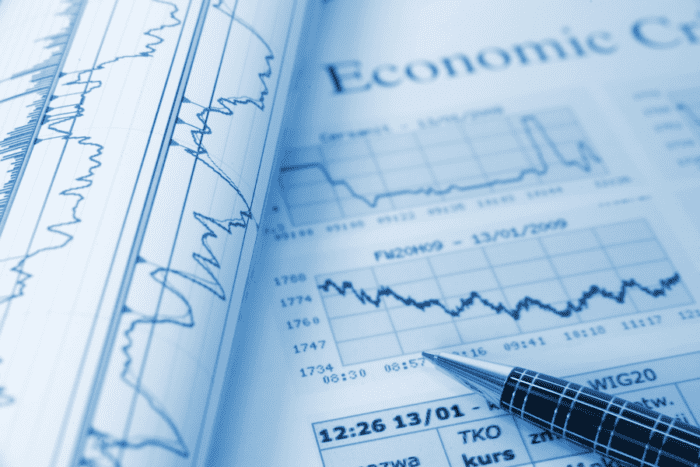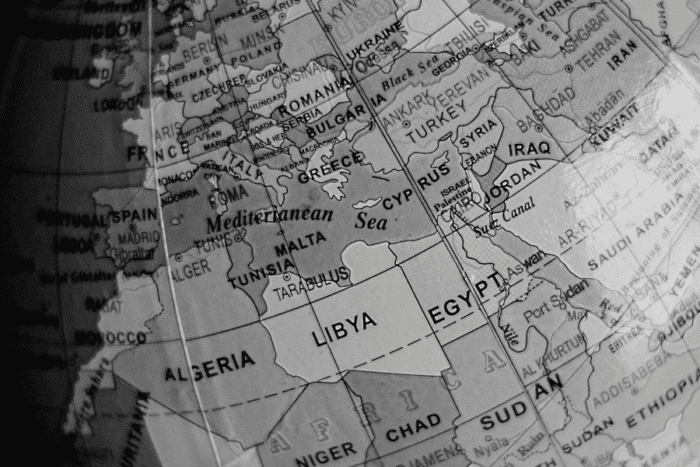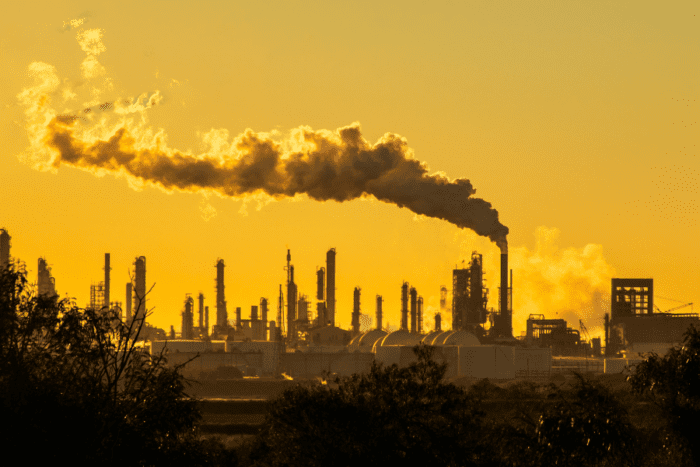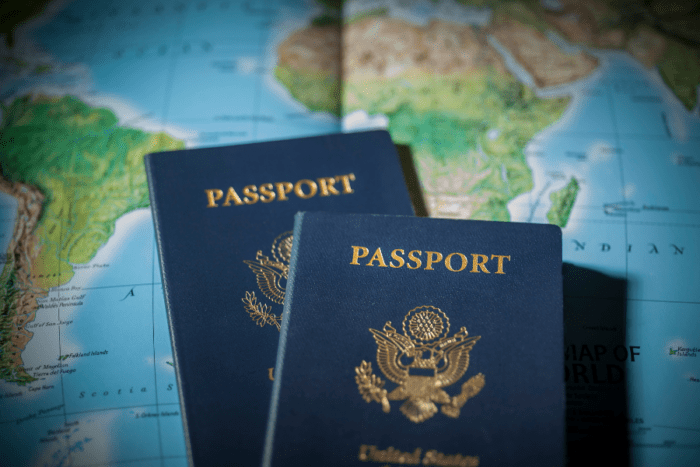Top Global Economic Risk Factors in 2023
January 2, 2025
A recent report by the World Economic Forum ranked the severity of global economic risk both in the short and long term. The Global Risk Report also highlighted that a significant risk is that these issues are often interconnected. Here we will discuss the top risks for the global economy in 2023 and how to prepare to protect your wealth.
If you are concerned about the prospect of a possible recession or would like to get detailed advice about offshore asset protection, talk to us today. At Nomad Capitalist, we can help you prepare for the top economic risks and create a tailored Action Plan to meet your needs.

What Are The Top Economic Risks 2023?
After the events of the last few years, we are more aware than ever of the risks that can impact us on an international level. The World Economic Forum’s Global Risks Report examines the challenges we will face in the coming years. This data is a breakdown of macroeconomic conditions but also impacts us all on a personal level.
Types Of Economic Risk
The tmjor global risks we are facing in 2023 are categorized into five groups; economic growth, geopolitical, environmental, technological, and societal. Here we take a deeper look at some of these risks.
Economic Risk
Topping the list of severe global risks is the cost of living crisis. Rapidly increasing costs are impacting every corner of the globe and people of every socio-economic status. Governments, banks, and decision makers worldwide are trying to control inflation rates and higher costs.
However, higher costs due to high-interest rates and inflation are anticipated to peak in the short term, with a global economic crisis predicted this year.
Countries and governments worldwide have seen record interest rates over the past year.
Developing countries, in particular, feel the pressure from rising costs on basic needs such as energy and fuel costs. While rising food prices has increased political instability, sparking mass protests in numerous countries, like the ones seen in Sri Lanka.
How severe or prolonged an economic downturn we will experience very much depends on how governments continue to measure and adapt to the pressure and what monetary policies are put in place.

Geopolitical
The report suggests that political unrest, including economic warfare, will be an increased risk over the coming years. The ongoing geopolitical situation and its impact on energy highlight how risks are highly interconnected.
The war in Ukraine has dramatically impacted access to materials and led to international trade sanctions, affecting energy supply and costs in Europe in particular.
Political instability is not isolated to Ukraine, however, and countries such as Sudan, Afghanistan, and Myanmar face deadly conflict and humanitarian emergencies also.
The food crisis is one knock-on effect impacting North Africa and the Middle East, potentially leading to instability comparable to 2010’s Arab Spring.
Environmental
In the longer term, environmental concerns top the chart. The geopolitical and economic crisis has worsened the lack of progress in tackling environmental risks and meeting net zero targets, pushing governments and businesses to take a different path.
For example, Germany has been criticized for falling back on fossil fuels in the wake of the country’s energy supply problems.
However, there is still some level of optimism, with initiatives like the REPowerEU plan and a shift to adaptation to the unavoidable impacts of climate change, including natural disasters, rather than reducing emissions.
On a societal level, the most significant economic risk highlighted in the report is large-scale involuntary migration. Other noteworthy risks fall under the technological category, including cyber attacks, cyber security, and ransomware. Both the public sector and private sector are on high alert with the acceleration of automation and digitalization.
The World Economic Forum report highlighted that because these crises are all hitting us simultaneously, we are facing a sort of polycrisis. The result is a pessimistic outlook, which may leave you wondering what you can do to prepare.

How to Prepare for Economic Risk Factors
Governments are creating policies in an effort to prepare and deal with economic risk factors on a macro level.
Entrepreneurs and investors must consider all the above risk factors when assessing their investment, business, and lifestyle.
Navigating the rising cost of living and managing investments means having a plan B in place for how you will handle financial emergencies. Thankfully there are a number of options that can help you prepare. Nomad Capitalist can advise on a range of fields including international tax planning, offshoring and asset protection strategies.
We can help you create a “plan b” to prepare for all eventualities by:
- Relocating your business and assets offshore to legally reduce taxes.
- Acquiring a second residency, which gives you freedom and options.
- Saving and investing overseas to earn higher returns.
Plan B
At Nomad Capitalist, we take a holistic view of the short-term and long-term economic factors you face and how best to protect your wealth.
Having a plan b means you have a backup or escape plan in place if global economic risk escalates further. Are you an entrepreneur looking to go where you will be treated best?
Prepare to adapt to a recession and other economic risks by planning now. You can start by getting your paperwork in order while also becoming comfortable with the idea of moving to a foreign country. This way you have time to explore and spend some time in your countries of choice.
If you are concerned about future global risks like a pandemic, having a second residency, a foreign bank account and overseas property means you have all the infrastructure ready if your freedom is jeopardized in the future.

Wealth Protection
Are you looking to protect your wealth and manage economic risk on a personal level?
Look for investment options in a foreign country, for example investing in offshore real estate.
Management of tax risks is also better sooner rather than later. You can legally reduce your taxes by moving to countries with tax incentives for foreigners.
Setting up infrastructure overseas, such as investments, taxes, and banking, provides both wealth and profit margins protection and a backup plan, “better to be years early than be a day late.”
Are you considering what lower-risk investments and options are out there? Check out our video Global Safe Havens in 2023.
FAQs
Several global risks could have a significant impact in 2023, including a potential global economic recession, a rise in international conflicts, and the possibility of another pandemic.
Economic risk preparedness is vital as it allows individuals and businesses to anticipate and manage potential financial risk and losses in a financial crisis.
On a governmental level, it means taking measures through national governance and national budget management. For individuals and businesses, it means making informed decisions about how to protect themselves and their assets against economic factors and financial crises.
The countries with the lowest inflation rates include Macau, Hong Kong, China, and Taiwan.
One reason for these Asian territories having less inflationary pressure is that they had longer, more widespread lockdowns when compared with other regions like West Europe, for example. This means that growth and consumer spending remained weak for longer.
Economic risk refers to factors that can directly impact the economy, including interest rates, exchange rates, tax rates, management, recession/debt crisis, sovereign risk, legislation, cyber attacks, and supply and demand.
Depending on your business activity, economic risks may also include international mutual funds, foreign currency exchange rates, labor costs, and government interventions.
If you are looking for help to prepare for economic risks that may impact you, contact us today, and we will help you with a holistic Action Plan, finding the best solutions for your needs.


Does Puerto Rico Pay Taxes to the US?
It’s a common question and one that often fuels confusion, debate, and a fair share of misinformation – Do residents of Puerto Rico actually pay US federal taxes? When most people think of US tax obligations, they naturally assume they apply uniformly across all US citizens. But when it comes to Puerto Rico, things are […]
Read more

Zug Canton Taxes: The Ultimate Destination for Wealth Management in Switzerland
Switzerland’s global reputation is built not just on stunning views of Alpine peaks and serene lakes but also on a foundation of exceptional quality of life, world-class infrastructure and investor-friendly tax policies. The results speak for themselves: efficient public transport seamlessly links cities and villages; the standard of living regularly ranks among the highest in […]
Read more

How Smart Investors Use Venture Capital to Build Wealth
Big companies like Google, Amazon, Facebook and Apple all started out as bold ideas backed by venture capital. Decades later, the same firms are household names, as familiar to most people as electricity, the internet, or the telephone. But hindsight is a fickle friend. The truth is, it wasn’t always so obvious they’d succeed. These […]
Read more





